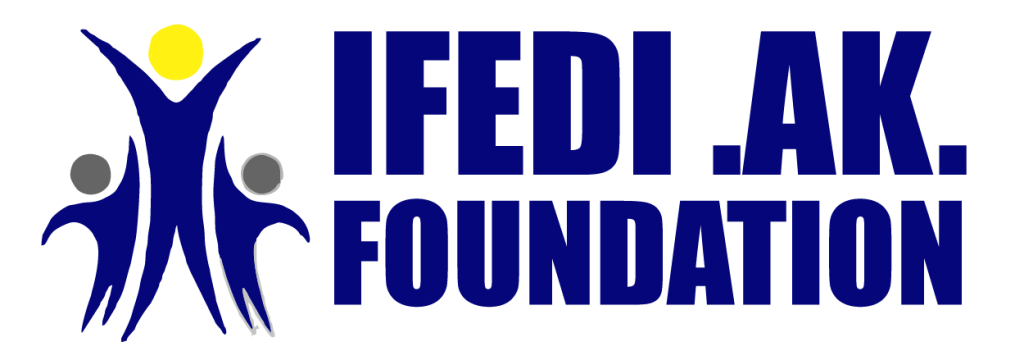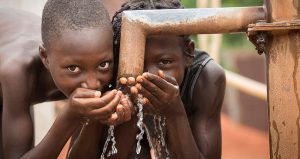As poverty continues to increase every day in developing nations, their strategies on how it can be prevented to ensure everyone has access to social amenities. Millions of people are asking how can we reduce poverty or What is the solution to poverty in Africa. eating three meals a day is one of the important steps in poverty reduction. Studies have proven that nearly half of the world’s population or about 3 billion people lives on $1.50 a day and about 85 percent of the world’s population lives on less than $10 a day.
Make a charitable donation on GlobalGiving to help the Helpers Social Development Foundation eradicating the root cause of poverty in Nigeria. GlobalGiving is the largest nonprofit online.
Focusing on how to curb poverty is very important. Both in the ways that an individual can have an impact and on the wider changes that need to be made to bring an end to poverty. Supporting public good projects as a humanitarian is one of the best approaches to poverty reduction in developing countries in Africa.
7 Steps on how to reduce poverty in Nigeria and Africa at Large
1. CREATE AWARENESS: while there is evidence that shows the effectiveness of raising awareness, there are those that argue the effectiveness. The involvement of celebrities in various initiatives often attract attention, aiding in raising awareness about global poverty. in
2005 the world stood together for the make poverty history campaign, a global campaign with the aim of addressing major issues that those living in extreme poverty face more than 40 celebrities endorsed the event and rallied their fan support. It can use social media as a voice to create awareness by sharing links on Facebook, Twitter, and other social media platforms will allow people to learn more about global poverty and will increase the general consciousness of the issues.
2. TAKE YOUR OWN ACTION: There are a few ways in which we can help as individuals such as funding a poor child’s education or sponsoring a poor family as well as influencing others to do so. Raising money and donating it to a non-profit organization such as HELPERS SOCIAL DEVELOPMENT Foundations can help as well to reduce poverty in Africa.
3. DONATION: Donation is one of the ways that can help to reduce the rate of poverty. Your charitable gifts can help these resilient communities continue to forge a pathway out of poverty and level the socio-economic playing field to help more people access the chance to create sustainable livelihoods. Many non-profits, charities and NGOs worldwide are committed to reducing poverty, these donations can help to equip people with skills, knowledge and economic empowerment. Leaving everything to politicians who care for their families and private pockets will spell doom for society. Many African leaders’ and politicians’ children study in foreign universities while leaving the nation’s public institutions unkept. Government healthcare systems are a health trap because government officials prefer to travel to developed countries for treatment while ignoring the public healthcare system.
4. ELIMINATE GENDER INEQUALITY: Gender discrimination is the unequal treatment of people based on their gender including granting privileges to a certain gender or marginalization to someone because of their gender identity. Sexual harassment and restricted or eliminated access to rights like education and healthcare are a form of gender discrimination that requires internal reflection and willingness to change as the data makes clear. However, gender discrimination is a systematic issue. The World Economic Forum estimates it will take 135.6 years to reach gender equality.
5. CREATE JOBS WORLDWIDE: Unemployment and underemployment lie at the core of poverty, the poor often use labour as the only asset they can use to improve their well-being. Hence, the creation of productive employment opportunities is essential for achieving poverty reduction and sustainable economic and social economic development. Employment can help to alleviate poverty through the following means; provision of income for the family. When the breadwinner of the family is gainfully employed, he or she will be able
to meet the basic and future needs of the family, examples are the provision of food, payment of school fees, and house rent.
6. EDUCATE EVERYONE: education helps increase individual earnings for every member of the family. UNESCO points out that basic reading skills can lift 171 million people out of poverty by 12 percent. UNESCO also mentions there are about one billion illiterate adults in the world. Education for all global monitoring reports (EFA, GLOBAL MONITORING REPORT,2013) indicates that education does not only help people escape from poverty by imparting knowledge and developing the skills that people need to improve their livelihoods but also helps to generate productivity gains that fuel and enhance the economy.
7. ACCESS TO SAFE WATER: is a fundamental component of eliminating poverty because a lack of clean water and poverty are intricately intertwined. When you can’t access safe water you can’t stay healthy to go to work, go to school, or grow your crop for safe consumption. Access to clean water and sanitation directly affects health and education. Currently about 800 million people live without access to safe water and about 2.5 billion live without adequate sanitation. Dirty bathrooms keep girls from attending school. Thus stopping them from receiving an education. lack of good water supply causes diseases like cholera and diarrhoea which have claimed the lives of more than one million children every year.
Tips on how to reduce poverty in developing countries through partnering with Ifediak Foundation. Ifediak Foundation is helping poor families in Nigeria.



